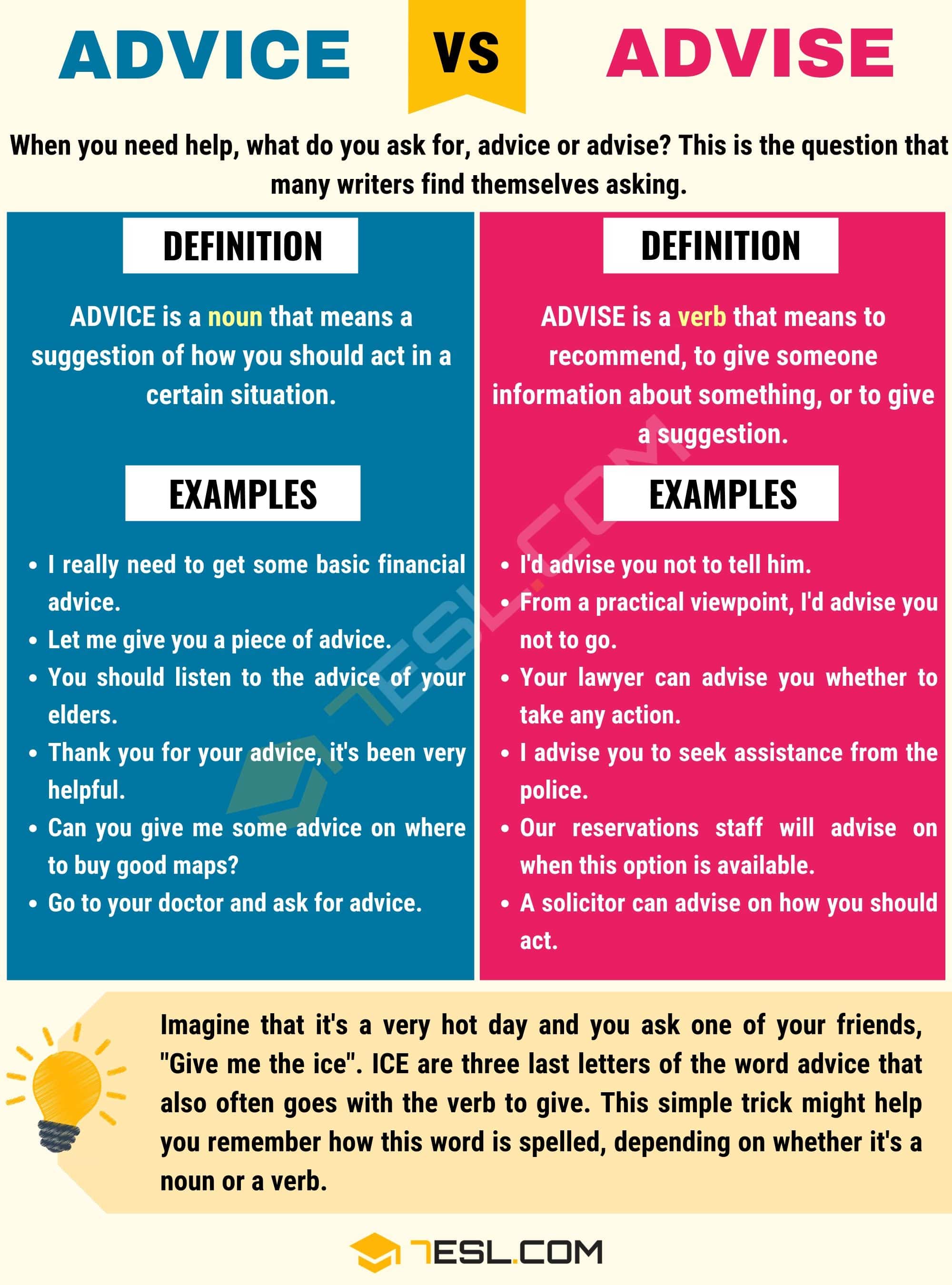Advise Vs Advice: Mastering The Nuances For Clear Communication
In the intricate tapestry of the English language, certain word pairs frequently trip up even the most seasoned speakers and writers. Among these, the duo of "advise vs advice" stands out as a classic example of how a single letter can completely alter a word's meaning and grammatical function. This subtle yet significant distinction is crucial for anyone aiming for precision and clarity in their communication, whether in casual conversation, academic writing, or professional correspondence.
Understanding the fundamental difference between these two commonly confused terms is not merely about adhering to grammatical rules; it's about ensuring your message is received exactly as intended. Misusing "advise" for "advice," or vice versa, can lead to awkward phrasing, undermine your credibility, and, in some contexts, even cause misunderstandings. This comprehensive guide will meticulously break down the nuances of "advise" and "advice," providing clear definitions, practical examples, and memorable tips to help you master their correct usage once and for all.
The Core Distinction: Parts of Speech
At the heart of the "advise vs advice" dilemma lies a fundamental grammatical difference: one is a noun, and the other is a verb. This distinction, while seemingly simple, dictates how each word functions within a sentence and, consequently, how it should be used. The English language, with its rich history and diverse influences, often presents such subtle variations, and mastering them is a hallmark of effective communication.
As the "Data Kalimat" clearly states: "The difference between advise and advice has to do with parts of speech." This is the golden rule to remember. Once you internalize that one refers to the *thing* given (a suggestion) and the other to the *act* of giving it, the path to correct usage becomes much clearer.
Understanding "Advice": The Noun
Let's begin with "advice." This word, spelled with a 'c', is a noun. It refers to the guidance, opinions, or suggestions offered to someone about what they should do in a particular situation. Think of it as the tangible (though intangible in form) item that is given or received. According to our "Data Kalimat," "Advice is a noun that means guidance about what someone should do." It is the information itself, the recommendation, or the counsel.
When you seek "advice," you are looking for information or suggestions. When you offer "advice," you are providing those suggestions. It's the content of the guidance, not the act of giving it.

Advice vs. Advise: Know the Difference! • 7ESL

Be Advised: How to Use Advice vs. Advise - Elite Editing

Advise vs Advice? What's the difference?